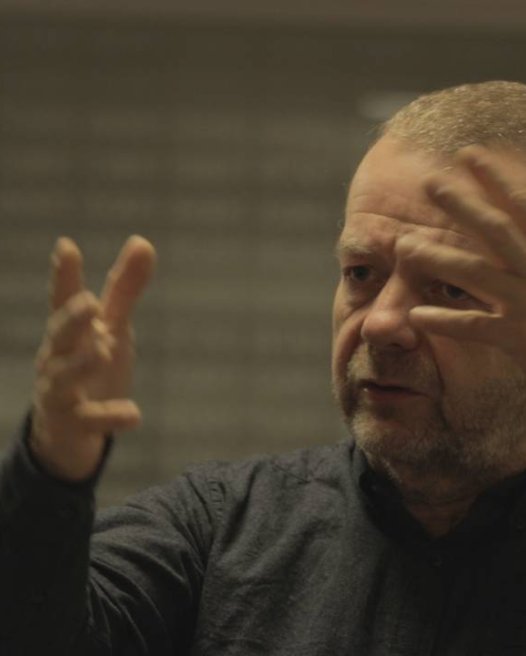Viktor Ciao
Poslední listopadový den roku 2013 speciální ozbrojené jednotky Berkut brutálně zasáhli proti demonstrantům shromážděným na kyjevském Majdanu. Mezi nimi byl i novinář Azad, který byl zraněn, a kterého tato událost vyprovokovala k vytvoření díla, které by lidi sjednotilo, zahnalo strach a povzbudilo je v boji za jejich ideály. Inspirací se mu stala italská píseň Bella Ciao. Svou verzi pojmenoval Vitia Ciao, což mělo znamenat symbolické rozloučení s Vitiou (Viktorem) Jakukovyčem. Mladá aktivistka Iryna se zúčastnila protestů od prvního dne revoluce a napsala k písni slova. Zpěvačkou se stala Olga, editorka televizní stanice, která se do té doby aktivně na revoluci nepodílela. Píseň se velmi rychle stala neoficiální hymnou revoluce. Její slova, která se loučila s Janukovyčem, byla slyšet nejen na Majdanu, ale v celé zemi a i v zahraničí během demonstrací na podporu Ukrajiny. Iryna, Azad a Olga jsou lidé, kteří byli spojeni bojem za pravdu a svobodu. Když se na postavy koukneme pozorně, můžeme rozpoznat tři různé lidi a tři různé pohledy na jednu revoluci.
Letters
Belarusian activist Vitold Ashurak wrote to his mother: “My beloved mother! Those people who say that adults do not need a mother are wrong! You alone raised Andrei and me and you wanted us to grow up to be decent people! No one will reproach you for your sons being thieves or swindlers! On the contrary, I was imprisoned precisely because I spoke the truth and urged not to bear with swindlers.” The mother's reply was not delivered to Vitold. It was his last letter from the prison, where he was tortured and died under unknown circumstances. After the emergence of unprecedented peaceful protest by Belarusians in 2020, by now the movement has been put down almost completely. People were killed and wounded, and thousands are in prisons with long sentences. The war in Ukraine again sparked the onset of protests against the war, as well as partisan actions against the Russian military. The repressions have become even harder. The only thing that connects prisoners with the outer world is letters. When the streets are quiet and people are afraid to even discuss politics, when an authoritarian state destroys all aspects of normal life, letters can give us an insight into the real human feelings which the system can't destroy. Pain, despair, love, and hope. Film in the form of found footage will be based on correspondence of political prisoners and their relatives, on letters and monologues of people who are actually free but feel themselves under occupation. In the face of ever increasing repression in Belarus many are forced to flee abroad or hide inside. The letters in different chapters, each with its distinct dramaturgy, leitmotif and symbolism, in an intimate manner narrate unusual and untypical perspectives from a worker, scientist, journalists, student, former investigator and others.
